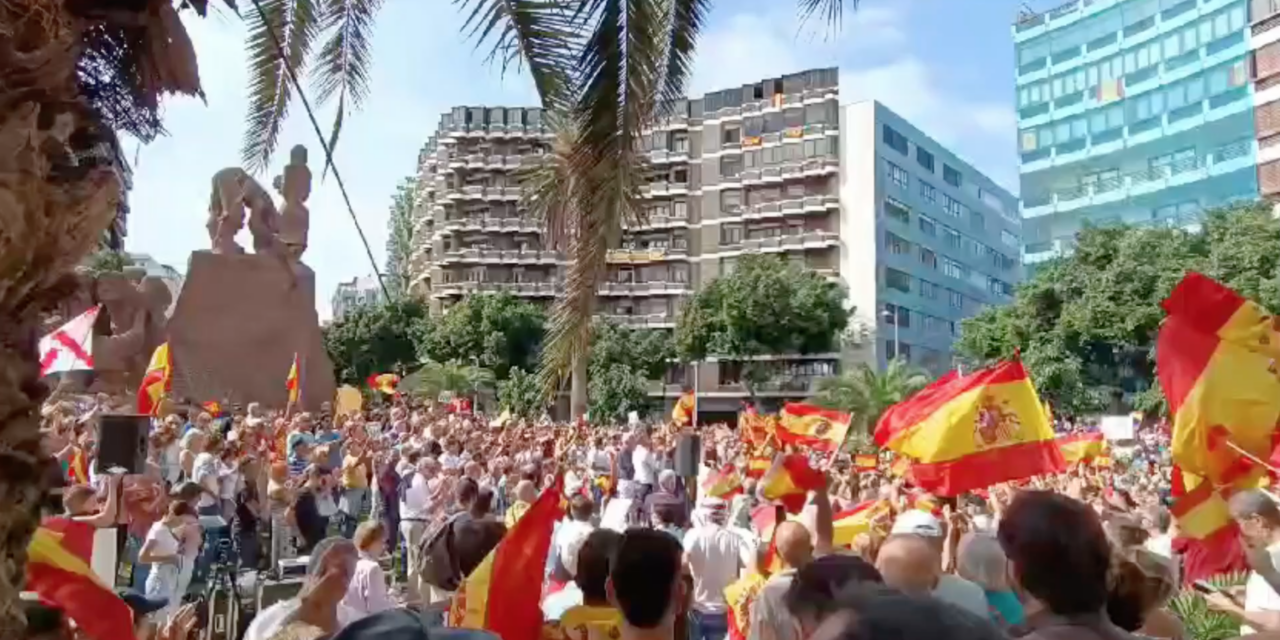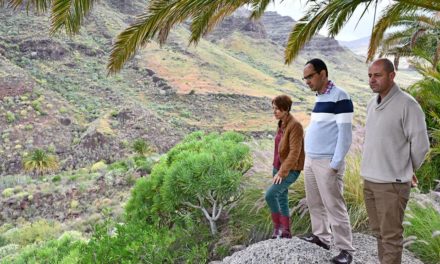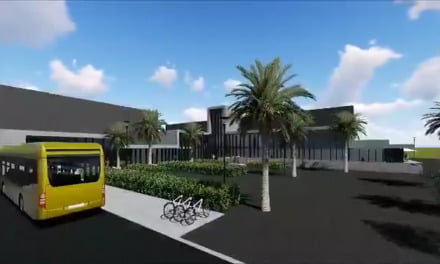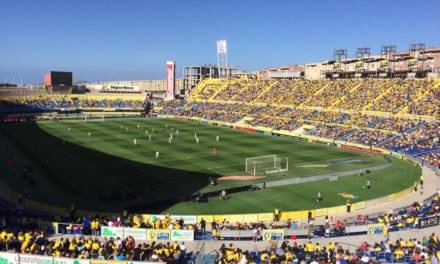Protests on Sunday in Las Palmas de Gran Canaria expressed discontent with the agreement signed last week, which aims to initiate a framework for negotiated solutions over the coming months between the Government of Spain and Catalan independence parties, this is to include the promotion of an amnesty policy to avoid criminalising politicians with a legitimate mandate and instead seek political dialogue and recognition that Madrid and Barcelona are not in agreement.
Protesters on Sunday, here on The Canary Islands, demanded the regional leader of the Partido Popular (PP), Manuel Domínguez, break the coalition government with Coalición Canaria (CC). A somewhat ironic demand as the regional government was formed by the PP & CC coalition denying the re-election of the socialist PSOE who were the party to receive the most votes in the last election. Domínguez, who currently serves as vice president in the regional government, faced calls to end the alliance during the demonstration attended by around 2,000 people in Santa Cruz de Tenerife, according to estimates by the Government Delegation.
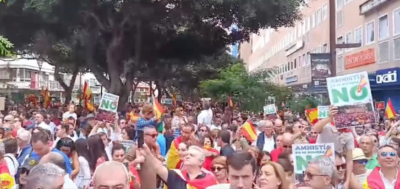 In Las Palmas de Gran Canaria, approximately another 2,500 people gathered, according to the Government Delegation in the Canary Islands, although the PP have tried to claim a higher turnout of around 8,000. The protesters in Las Palmas de Gran Canaria criticise the CC for aligning with the Spanish Socialist Workers’ Party (PSOE), having spent weeks flip-flopping between different positions, and supporting Pedro Sánchez’s investiture in exchange for concessions. Their discontent was vocalised with chants of “Coalición Canaria, accomplice,” “this president is a delinquent,” and “no means no,” echoing dissatisfaction with the political decisions made at the national level.
In Las Palmas de Gran Canaria, approximately another 2,500 people gathered, according to the Government Delegation in the Canary Islands, although the PP have tried to claim a higher turnout of around 8,000. The protesters in Las Palmas de Gran Canaria criticise the CC for aligning with the Spanish Socialist Workers’ Party (PSOE), having spent weeks flip-flopping between different positions, and supporting Pedro Sánchez’s investiture in exchange for concessions. Their discontent was vocalised with chants of “Coalición Canaria, accomplice,” “this president is a delinquent,” and “no means no,” echoing dissatisfaction with the political decisions made at the national level.
“Spain is not for sale” was undoubtedly the most repeated proclamation in the rally called by the Popular Party throughout Spain and to which supporters responded in Las Palmas de Gran Canaria.
The announcement of the agreement last week paves the way for the investiture of Pedro Sanchez this week at the Cortes (parliament), following the investiture debate scheduled for Wednesday & Thursday, and a renewal of the PSOE government in a broad coalition in which the Catalan separatist vote will be pivotal. Though the PP received the most votes on July 27, and were invited to try to form a government, their 137 seats fell well short of the required 176 to be able to form an absolute majority. In an attempt to form a coalition they have relied on the 33 seats from the ultra-right Vox party and the centerist Basque National Party, falling short of winning a majority.
Pedro Sanchez was invited to then try to form a government and is widely expected to garner 179 votes in the Congress of Deputies after the investiture debate this coming Wednesday and Thursday in Madrid.
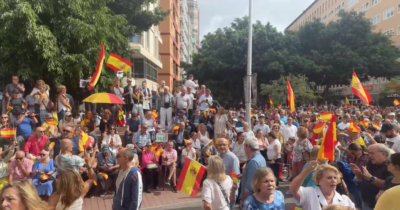 Poli Suárez, the president of the PP on Gran Canaria, and other key figures, including councillors from the regional government and the president of the regional parliament, Astrid Pérez, participated in Sunday’s demonstrations. Suárez reported encountering disapproval from “many PSOE voters” who expressed their opposition to decisions made by the national party leadership.
Poli Suárez, the president of the PP on Gran Canaria, and other key figures, including councillors from the regional government and the president of the regional parliament, Astrid Pérez, participated in Sunday’s demonstrations. Suárez reported encountering disapproval from “many PSOE voters” who expressed their opposition to decisions made by the national party leadership.
The protests have underscored the tensions within the coalition government and the broader discontent among supporters of the conservative right regarding political alliances and decisions made at the national level. The estimated attendance figures varied between official estimates and claims by the PP.
Protests in Madrid over the last week have been marked by right-wing violence in the streets, as Vox supporters sought to close arterial routes through the Spanish capital and confronted police outside the main PSOE headquarters in Calle de Ferraz. For the tenth consecutive night, a rally next to the PSOE headquarters saw at least 1,200 attendees, according to the Government Delegation. A smaller number than previous days, when large numbers of Vox supporters have joined the PP organised demonstrations. Protests called by the PP to protest against the offer of amnesty for separatist politicians seeking to engage in dialogue rather than conflict; as an antidote to the process termed as “#Lawfare”, which is to say the criminalisation of political opponents, by stretching the use of the law to try and shut down legitimate debate.
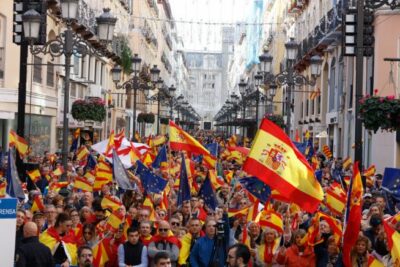 In Madrid, some 80,000 people, according to data from the Government Delegation, heard PP leader Alberto Núñez Feijóo accuse Sánchez of buying the presidency of the Government “in exchange for the judicial impunity of his partners paid for with the taxes of the Spanish people.” He has announced that the mobilisations will continue: “We are not going to remain silent until there are elections.”
In Madrid, some 80,000 people, according to data from the Government Delegation, heard PP leader Alberto Núñez Feijóo accuse Sánchez of buying the presidency of the Government “in exchange for the judicial impunity of his partners paid for with the taxes of the Spanish people.” He has announced that the mobilisations will continue: “We are not going to remain silent until there are elections.”
In Seville, the Government delegation estimates attendance around 40,000 people, compared to 6,000 in Barcelona, according to the Urban Police. Vox has repeatedly joined the protests and its leader has continued to ramp up inflammatory language against what he calls the “coup party” caling for permanent mobilisation in the streets, courts and institutions.
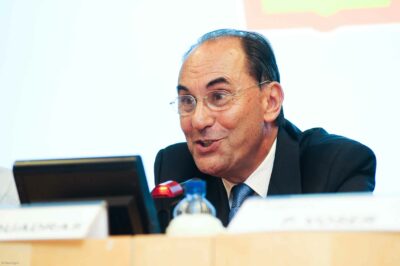 In a shocking turn of events last week Vox founder and 9th former president of the PP of Catalonia, 78-year old Alejo Vidal-Quadras, was shot in broad daylight on a busy Madrid street in the Salamanca neighbourhood of Madrid.
In a shocking turn of events last week Vox founder and 9th former president of the PP of Catalonia, 78-year old Alejo Vidal-Quadras, was shot in broad daylight on a busy Madrid street in the Salamanca neighbourhood of Madrid.
With many from the ultra-right, and reportedly from the Kremlin, immediately trying, it would seem erroneously, to conflate his attempted murder with the current discontent over the PSOE coalition’s negotiations, the judiciary and the victims own family have urged calm and caution as police investigate what is suspected to have been a professional assassination attempt, perhaps linked to the politician’s long running links with Iranian opposition groups in exile (who helped to fund the foundation of his ultra-right wing party) and Iran’s having added his name to their list of terrorist sympathisers and supporters.
The investigation into the attack is still very much in its early stages, and has been made secret until further notice.

